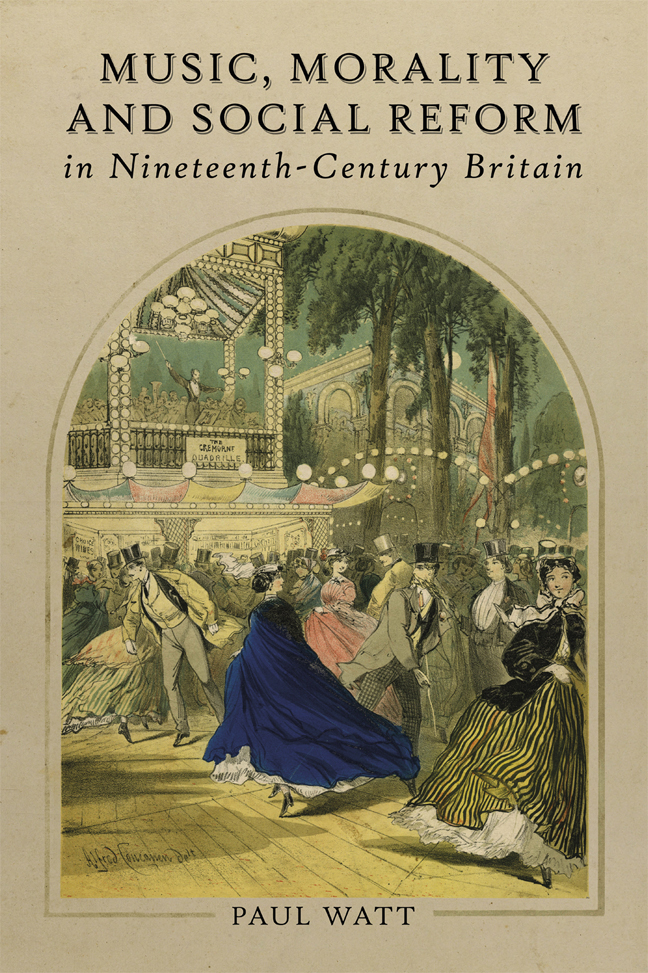6 - Utopia: Auguste Comte and Malcolm Quin
Published online by Cambridge University Press: 21 February 2024
Summary
Schemes of moral and social reform might be described as utopian. Individuals, institutions and theories of political and economic improvement all strove to make people and the society in which they lived better, progressive, perhaps even perfect or ideal. For many individuals and institutions discussed in previous chapters, the promulgation of Christianity was seen to be the basis on which moral and social lives should be grounded. Creating an ideal, utopian state or nation was for many educators, politicians and philanthropists and, indeed, church leaders, such as Malcolm Quin, a driving force behind their moral and social-building schemes. Unlike other chapters in this book, this one analyses a particularly small community and a very modest musical repertory. But Quin was part of a much larger movement that included the adoption of Christian or pseudo-Christian teachings in moral discourses and the striving for a better social and communal life.
It has been remarked that the nineteenth century was ‘the most utopian century of modern times’. The Marquis de Condorcet (1743–94), Henri Saint-Simon (1760–1825) and Karl Marx (1818–83) are just some of those whose social and political efforts were aimed at rebuilding, or devising anew, social organisation and belief. Auguste Comte (1795–1857) was another inspiration for utopian causes. The influence of Comte in many countries around the world facilitated the establishment of many organisations, including some that described themselves as churches, to help people to pursue a freer range of worship or lifestyle. While some Utopian societies were all-embracing and required living in compounds or strictly regulated communities, the various positivist churches and chapels were established as places of worship only, so arguably could only loosely be described as utopian movements, though the theology of their hymns, discussed in this chapter, may suggest otherwise. However, adopting Comte's positivism to various degrees, positivist communities sprang up in many parts of the world, especially in Britain. An example of such a community was Malcolm Quin's positivist church, which sought to break free from Catholicism in pursuing a new moral and ethical sensibility, in which music was to play a central role.
- Type
- Chapter
- Information
- Music, Morality and Social Reform in Nineteenth-Century Britain , pp. 156 - 180Publisher: Boydell & BrewerPrint publication year: 2023



